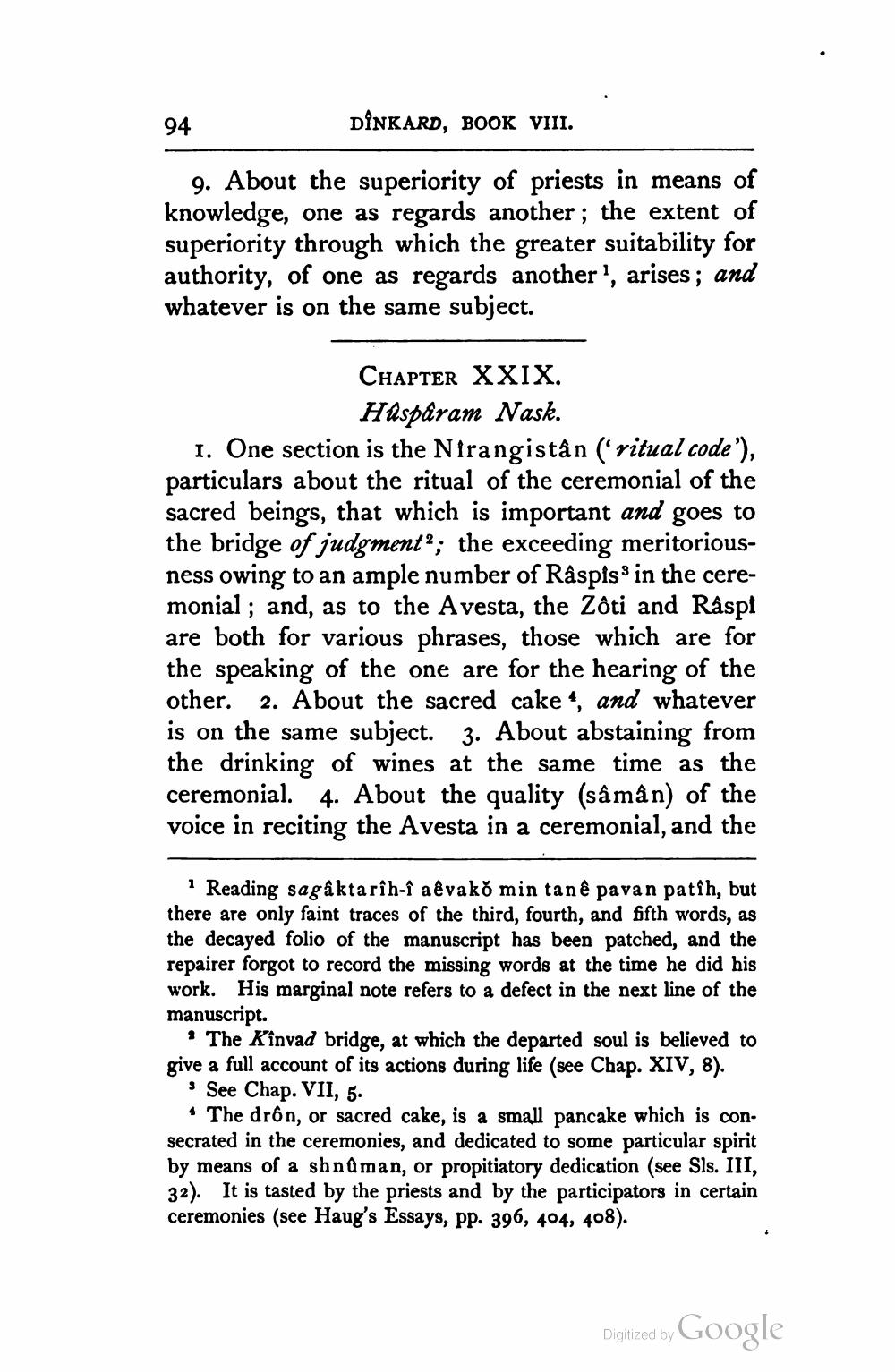________________
DINKARD, BOOK VIII.
9. About the superiority of priests in means of knowledge, one as regards another; the extent of superiority through which the greater suitability for authority, of one as regards another', arises; and whatever is on the same subject.
94
CHAPTER XXIX. Hûsparam Nask.
1. One section is the Nirangistân ('ritual code'), particulars about the ritual of the ceremonial of the sacred beings, that which is important and goes to the bridge of judgment; the exceeding meritoriousness owing to an ample number of Râspis3 in the ceremonial; and, as to the Avesta, the Zôti and Râspî are both for various phrases, those which are for the speaking of the one are for the hearing of the other. 2. About the sacred cake, and whatever is on the same subject. 3. About abstaining from the drinking of wines at the same time as the ceremonial. 4. About the quality (sâmân) of the voice in reciting the Avesta in a ceremonial, and the
1 Reading sagâktarîh-î aêvako min tanê pavan patîh, but there are only faint traces of the third, fourth, and fifth words, as the decayed folio of the manuscript has been patched, and the repairer forgot to record the missing words at the time he did his work. His marginal note refers to a defect in the next line of the manuscript.
'The Kînvad bridge, at which the departed soul is believed to give a full account of its actions during life (see Chap. XIV, 8).
3 See Chap. VII, 5.
The drôn, or sacred cake, is a small pancake which is consecrated in the ceremonies, and dedicated to some particular spirit by means of a shnuman, or propitiatory dedication (see Sls. III, 32). It is tasted by the priests and by the participators in certain ceremonies (see Haug's Essays, pp. 396, 404, 408).
Digitized by
Google




